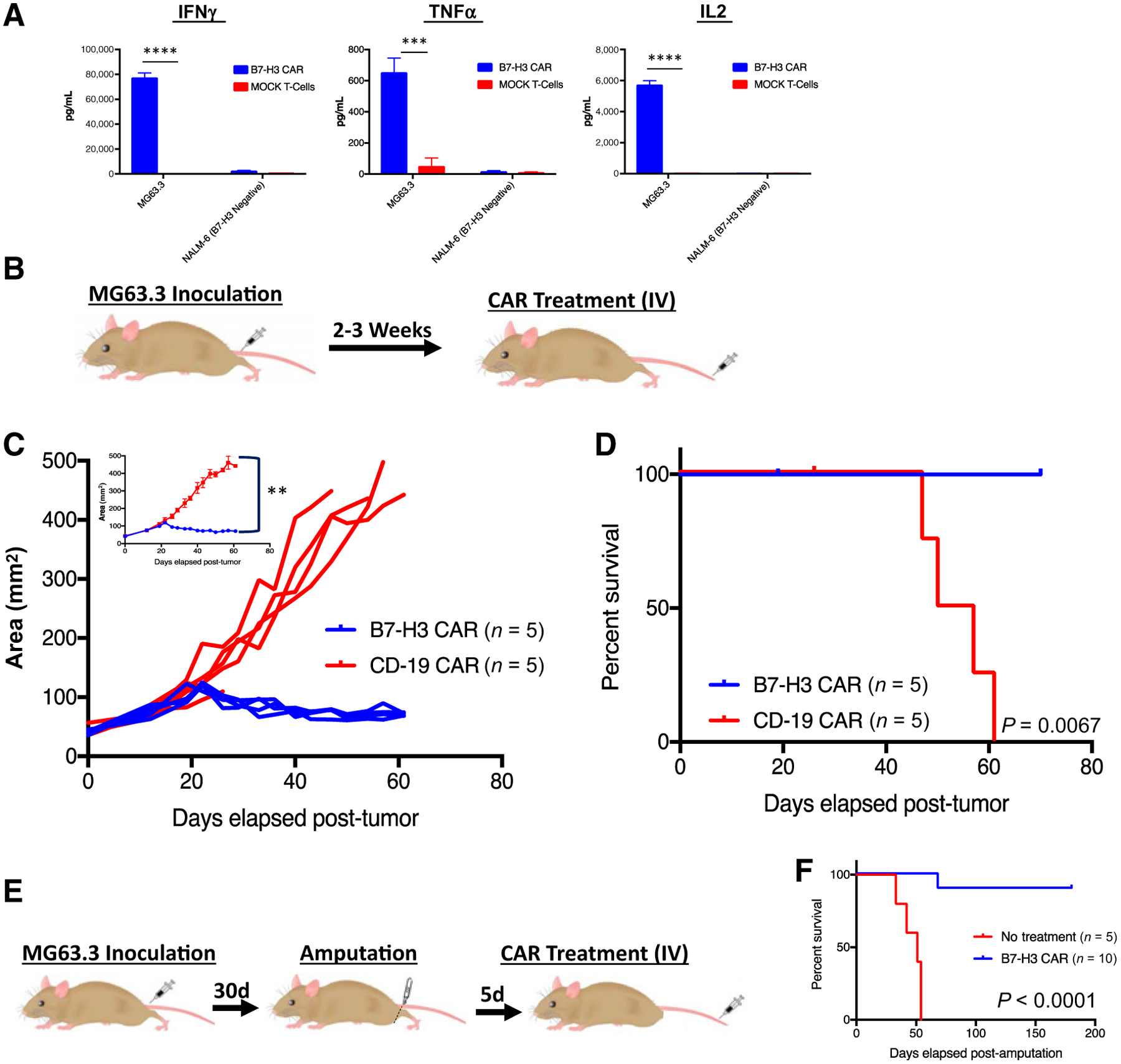Figure 2.

Systemically administered B7-H3 CAR T cells induce regression of osteosarcoma xenografts. A, B7-H3 CAR T cells produce IFNγ, TNFα, and IL2 following 24-hour in vitro coculture with MG63.3 osteosarcoma. Representative results of four experiments with 3 different PBMC donors are shown. B, Mouse model of orthotopic osteosarcoma: 1e6 MG63.3 tumor cells were injected into the periosteum of the tibia in NSG mice. Two to three weeks later, following onset of measurable tumors, 1e7 B7-H3 CAR+ T cells or irrelevant control CD19 CAR T cells were intravenously administered. C, Tumor growth was measured biweekly by digital caliper and tumor area was calculated. Values for individual mice, as well as mean values per treatment group (inset) are shown. D, Survival curves of mice treated as in B. Representative results of three experiments with 3 different PBMC donors are shown. E, Metastatic model of osteosarcoma: MG63.3-derived tumors were allowed to grow and metastasize before the mouse underwent amputation followed by administration of intravenous 1e7 B7-H3 CAR+ T cells. F, Survival curves of mice treated as in E. Representative results of four experiments with 3 different PBMC donors are shown. Error bars, SEM. P values were calculated as described in Materials and Methods.
